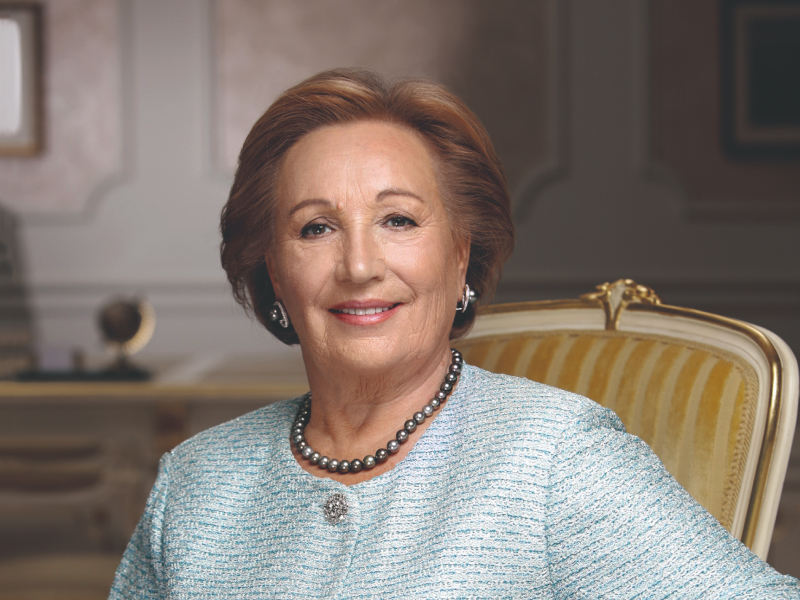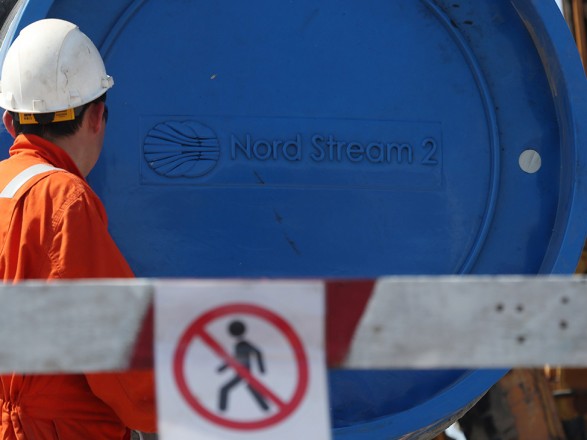Kiev. Ukraine. Ukraine Gate – December 29, 2020 – Business
Filya Zhebrovska is one of the few women in the ranking of the top 100 richest Ukrainians, which is made by HB and the investment company Dragon Capital. With a fortune of $ 263 million, she ranks 32nd.
70-year-old Zhebrovskaya is the main shareholder of Farmak, the largest domestic manufacturer of medicines. She came to work at the enterprise in 1980, when it was still the Lomonosov Kiev Chemical and Pharmaceutical Plant. Back then, he mainly produced pharmaceutical ingredients for other businesses. At first, Zhebrovskaya, who held the position of chief accountant, and then became a financial director, did not think much about entrepreneurship and was not going to connect her life with the plant, as she was sure that her future career would be related to audit.
“But by 1995 the plant was on the verge of shutting down. We had practically no competitive products. From what we produced, it was possible to sell only Corvalol, Naphtizin and glucose. But then we did not know how to implement. They produced something, stopped the line and sold out stock for a long time. 1.3 thousand employees were out of wages for months. And somehow employees from the workshops came to me as a person who was the best person at that time to understand the new economic realities, explained the capabilities of the plant and offered to nominate my candidacy for the position of chairman of the board at a meeting of shareholders,” Zhebrovskaya said in an interview with Focus about how in 1995 she headed the reorganized joint stock company.
After that, the production was re-equipped and modernized. According to Proxima Research, since 2010 Farmak has been the leader in the domestic pharmaceutical market in terms of sales of medicines in monetary terms.
The company has two production sites – one in Kiev, the other in Shostka (Sumy region), where the company opened production in 2015. She has 220 product dossiers in her portfolio. Farmak focuses on generics (analogues of original drugs with the same qualitative and quantitative composition). In 2019, they accounted for 90.5% of sales. The company has two original drugs – Amizon and Antral. They provide 4% of sales.
The realities of power
We have a new government. What are your expectations from him? Are you skeptical or optimistic?
- While I can say something about specific people. For example, Minister of Health Ilya Yemets is a world-renowned doctor. And he also has a certain political experience. Or Foreign Minister Dmitry Kuleba, a hereditary diplomat. He clearly knows what to do.
But in general, the new government will face not only a difficult economic situation in the country, but also a crisis of confidence. The latter, in my opinion, is a logical result of populist sentiments in society. Most Ukrainians expect higher wages and pensions from the authorities, not thinking about where to get the money for everything. This is not only a Ukrainian problem – look at the protests in France. There people also demand an increase in social benefits, not understanding where they come from. This is a global trend stemming from growing social inequality and unfair distribution of capital?
From year to year, Ukraine’s positions in Doing Business are growing. Have you felt the improvement in the business climate?
- Much has changed in the six years since the Revolution of Dignity. For example, we have practically forgotten what problems with VAT refunds are: if you work transparently and submit reports on time, this tax is returned to you automatically. No complaints about environmental audits. The adopted laws on European integration simplified access to new markets. Many pieces of paper, which had to be run for months, can now be obtained in electronic form.
But I would not say that it has become easier to do business globally. Companies from the government, by and large, need two things: clear rules of the game and support for undertakings beneficial to the state. We create new jobs, invest in Ukraine. In 2019, Farmak reinvested UAH 900 million of profit in the development, in 2020 it plans about UAH 1.2 billion. In response, I would like to see, for example, a coherent state program to support exports. But she’s not there. The most curious thing is that in the crazy 1990s, the state had a clear vision of what efforts were needed to develop domestic business. Since 2001, I have not felt that there is such an understanding. Relations with the state boil down to the fact that you pay taxes – that’s what you pay.
In this regard, I like the policies of Donald Trump. For example, in February he flew to India and brought contracts for the supply of helicopters for $ 3.5 billion. These are new jobs, the development of the US economy. It is clear that the deals were prepared in advance, but without government support they would not have taken place. We talk a lot about the economization of foreign policy. But I have not heard for a long time that any of our presidents brought orders for the Ukrainian industry from foreign trips.
Can you name three things, the appearance of which will mean that the state has begun to take care of the development of Ukrainian business?
- First: trade missions will clearly know which of the Ukrainian producers are working in their country, and help them to increase the country’s export potential.
Second, delays at customs will stop due to allegedly understated invoices. For example, we have a program to reduce the cost of purchasing raw materials. We provide real documents confirming the value of the goods. But the customs officials say, why did others buy more expensive than you?
Third: the regulatory policy will become consistent and predictable, and not like now: we either abolish the SES, then we return it. Since 1996, when the Law “On Medicines” was adopted, the rules of the game on the pharmaceutical market have changed so many times that it is very difficult to make long-term plans.
Family values
You have been running Farmak as a private company since 1995. If now we were in the same situation as 25 years ago: there is an opportunity to gain control over an unprofitable enterprise, but it is not clear what to do with it, what would you choose – to build a business or look for another hired job?
- I didn’t think much about entrepreneurship then, and I wasn’t going to connect my life with the plant. There was a more attractive prospect: to work in one of the world’s largest audit companies. When “Farmak” was still a Chemical-Pharmaceutical Plant named after MV Lomonosov, I worked there as chief accountant. I knew the case well. In the early 1990s, cooperatives began to appear en masse, and they had to do reports. So I found a part-time job. For every report that took several days, I was paid $ 100. I was making $ 500 a quarter without much effort – not bad money for the early 1990s. Therefore, I was sure that my further career would be related to audit, I even wrote my Ph.D. thesis on this topic.
Always busy. Filya Zhebrovskaya moved to the Supervisory Board in 2017, but still often visits the enterprise
But by 1995, the plant was on the verge of shutting down. We had practically no competitive products. From what we produced, it was only possible to sell Corvalol, Naphtizin and glucose. But then we did not know how to implement. They produced something, stopped the line and sold out stock for a long time. 1.3 thousand employees were out of wages for months. And somehow employees from the shops came to me as a person who, at that time, was the best person to understand the new economic realities, explained the capabilities of the plant and offered to nominate my candidacy for the position of chairman of the board at a meeting of shareholders.
But still, if you didn’t get the assets of the plant – workshop, equipment – practically for free – how would you start your business from scratch?
- At that time, our plant specialized in the production of active ingredients for other enterprises. They were produced on obsolete equipment using archaic technology. When the borders opened and the flow of active substances from India poured out, our products turned out to be uncompetitive, no one needed them. The difficulties of the plant were connected with this.







